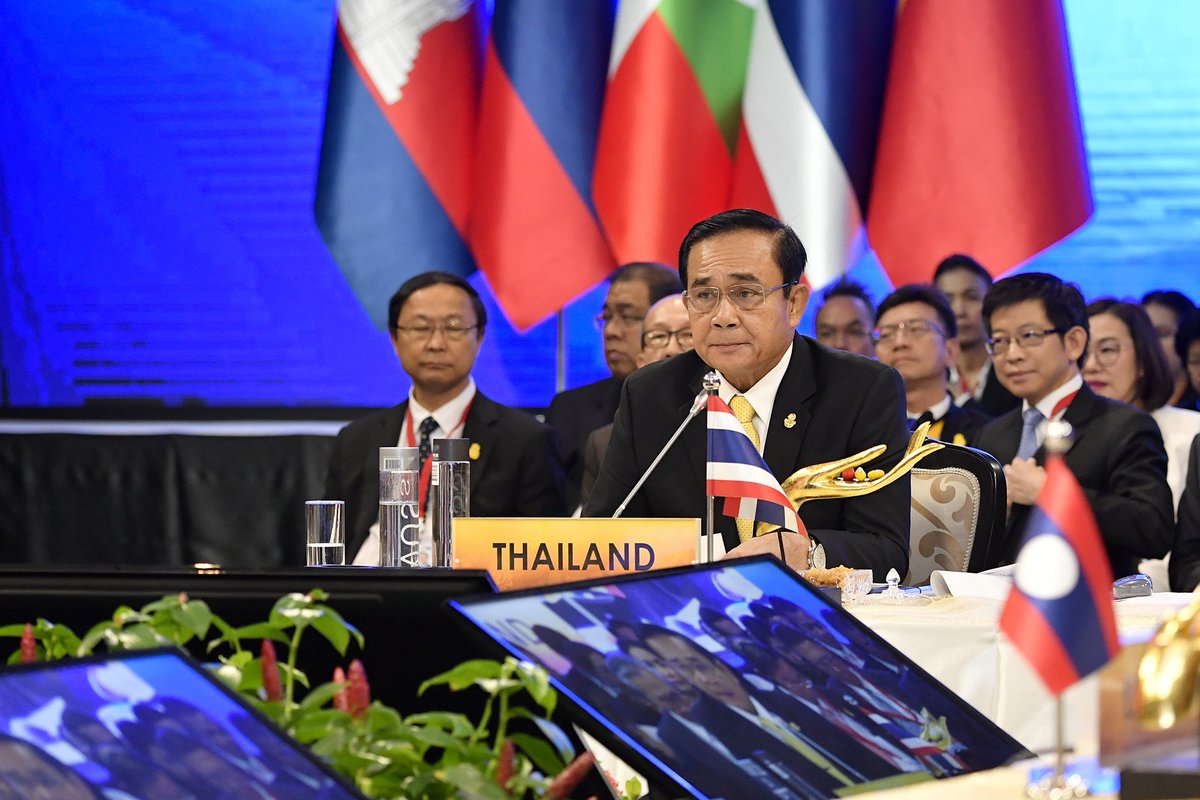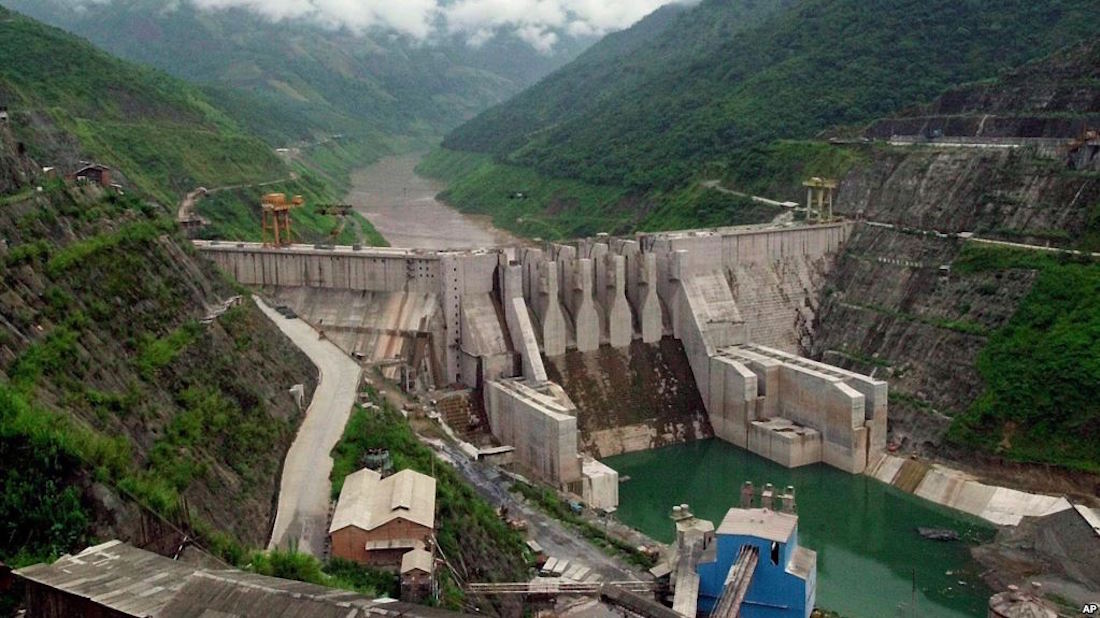Thailand has proposed starting a new Southeast Asian fund to boost sources of financing for transportation infrastructure and other projects in five Mekong River basin countries.
Thai Prime Minister Prayuth Chan-o-cha made the proposal Saturday during a speech in Bangkok at the eighth Ayeyawady-Chao Phraya-Mekong Economic Cooperation Strategy (ACMECS) summit, which was attended by leaders of Cambodia, Laos, Myanmar and Vietnam.
“Thailand has attached great importance to the issue of sustainability of the source of financing and, therefore, has proposed to related financial agencies to consider possible models for an ACMECS Fund for financing projects,” Prayuth said.
Because Bangkok is spearheading the fund, it will contribute seed money, Prayuth said, without elaborating.
The prime minister made the proposal about the fund on the same day that leaders of the five-member economic bloc adopted a five-year master plan, which Prayuth had described as the first of its kind in the sub-region. The master plan aims at propelling the economy in the basin by harmonizing trade and investment rules, he said.
Prayuth said senior financial officials from the five nations would meet in Thailand later this year to discuss details for establishing the fund.
He did not provide more information, but Reuters quoted Thai foreign ministry official Arthayud Srisamoot as saying that the fund would raise money through the sale of stocks and bonds by issuing debts for projects.
“There is a sense among these countries to try to engage more within this region before going out to China, to South Korea, Japan and India,” Arthayud told the news agency.
ACMECS, whose acronym represents the three major rivers in the sub-region, including the Mekong, was established in 2003 to strengthen bilateral economic collaboration and narrow development gaps within the five ACMECS countries, which are also members of the Association of Southeast Asian Nations.
Thai officials believe the nation’s infrastructural development could connect with the other countries through the ACMECS master plan, potentially increasing trade values and investment along the border, Prayuth told a news conference.
“That creates jobs, incomes, narrowing development gaps and boosting economic growth in our region,” Prayuth said.
It was not immediately clear how the proposed fund would affect China’s investments in the region, where Beijing has allocated billions of dollars through its Belt and Road Initiative, Chinese President Xi Jinping’s economic crown jewel that was launched in 2013.
Beijing has backed infrastructure projects in Southeast Asia, including a $5.5 billion railway plan to link Thailand’s eastern seaboard with southern China, as part of the geopolitical strategy aimed at reviving the ancient Silk Road trading routes with a global network of roads, ports and railways.
The proposed ACMECS fund will belong to the five ACMECS members, Nikorndesh Palangura, director-general of the Thai Department of International Affairs, told a news briefing.
“The reason why Thailand initiated the idea of establishing the fund was that we saw a real need that we, at least partially, can become self-sufficient, in a way,” he said.
Reported by BenarNews, an RFA-affiliated online news service.





